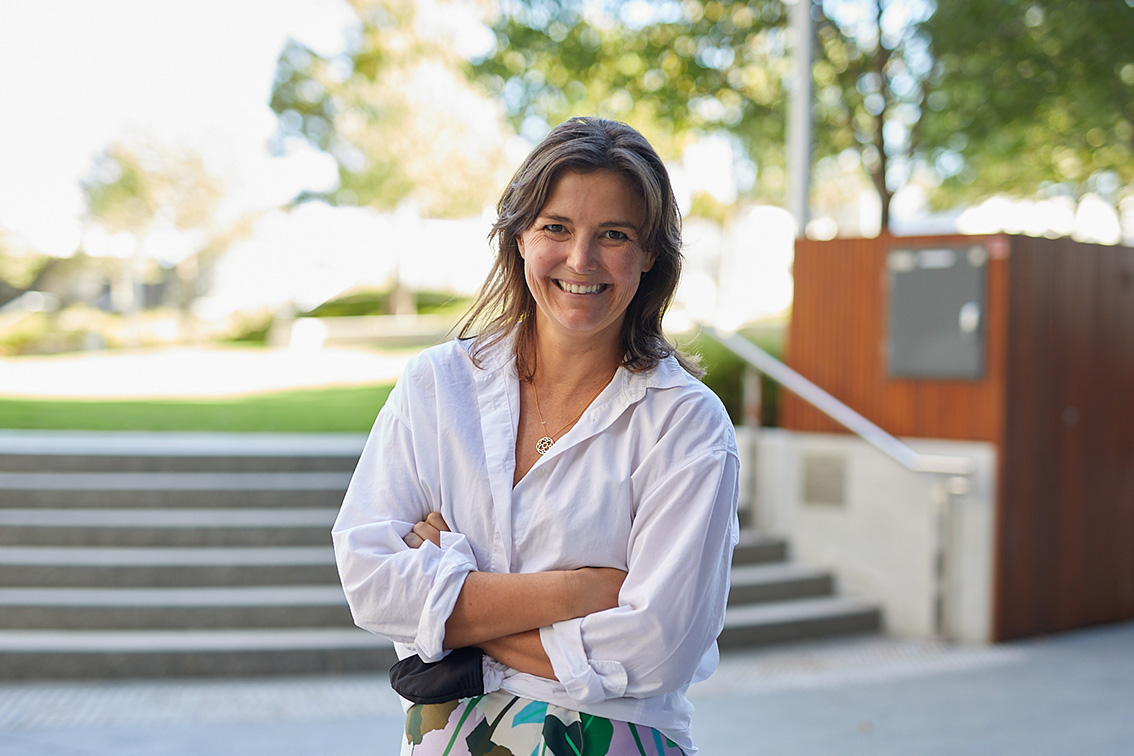Hannah Muirhead: Breaking the Bias

This year, International Women’s Day centres around the theme of Breaking the Bias. Being invited to speak on this topic, at an event organised by The Brand Agency, led me to a moment of self-reflection. As a white, educated and privileged woman, instances where I have battled bias don’t automatically spring to mind. Like many women, I have lived through the mudslinging of street-side sexual harassment but without any long-term damage. Unlike many women, I have never felt victimised, afraid or bullied in the workplace. Am I really fit to speak on this topic? Writes Hannah Muirhead, Head of Brand Strategy, The Brand Agency Perth.
The dictionary defines bias as “the inclination or prejudice for or against a person or group especially in a way that is considered to be unfair.” It’s also a word used to describe “a cut in fabric that goes diagonal to the natural weave.” For me, this definition provokes a much broader view of bias. Bias in the modern world is much more hidden, yet no less insidious than it was a few decades ago when it was illegal for a married woman to get a job in Australia’s public service or women of a certain age were passed over for men.
Let’s look at leadership. For years women were told that to attain leadership positions, they needed to ‘lean in’. This brand of corporate feminism taught women to live by the mantra of ‘self-advancement at any cost’. To emulate the competitiveness and over-confident attitudes of men. It’s here in this culture of power poses and hustle that I have seen a different kind of bias rear its ugly head. As leaders have modelled a certain way of being, an intrinsic ‘leadership potential’ bias has emerged, which has driven the over promotion of a certain type of personality.
Queue an ascension of people into C-suites who, modelling their behaviour on their (often male) leadership forebears, were driven by a heightened sense of self interest and a lack of collaboration. Selflessness was viewed as weakness, and selfishness, competitiveness and indefatigable ambition was recast as empowerment.
What other impacts does this bias have? In field experiments, the Dunning-Kruger effect –a cognitive trap that sees people believe that they are smarter and more capable than they really are, has been observed more widely in men. Meanwhile imposter syndrome has been more widely observed in women. This kind of inconsistency in self-worth wouldn’t be too bad, but in a world battling with a preconceived bias around what a good leader looks like, we’ve been conditioned to conflate confidence with competence. One need only look at the leaders across the free world to see where this landed us: Boris. Scott. Donald.
This ‘leadership potential’ bias has led to a dearth of diversity at the top of many organisations. Not just a diversity of gender, race and age, but diversity of personality traits. Swiss Neuroscientists have discovered women’s brains show a stronger reward signal for kindness and generosity: women are hardwired for kindness. Yet this bias sees leaders who practice humility, lack ego and promote a more collaborative style become noted for their exception.
How many leaders do you know who practice these softer skills daily? I know a plethora of people who don’t fit the traditional norms of leadership who have been glossed over for those who fit right into the mould. Maybe they dress differently. Maybe their shoes aren’t right. Maybe they choose to work part time for that short precious time when their babies are small. Maybe they prioritise impact rather than winning at any cost. Maybe they are introverted and prefer to listen first, ask questions, and provide considered responses later. Women of colour or women with disabilities or trans-women experience this kind of exclusion from leadership at even higher rates than cis-gendered woman. These are the people who can bring a different kind of diversity to the table filling the room with multiple perspectives to let creativity rule the day. This kind of diversity leaves no space for groupthink.
Many will agree the very last thing the world needs right now is leaders in a battle of relentless, short-sighted competition. As Arwa Mahdawi says in her latest book on leadership “true leadership means thinking about what people deserve, practicing solidarity, thinking less about your ego and more about your impact on others”. For only when we widen our view of what a leader can be and invite people who go “diagonal to the natural weave” on to the decision-making table, can we truly enjoy the benefits of a diverse workplace – creativity, innovation and growth.

1 Comment
Adding ‘leadership potential bias’ into my arsenal. Thanks for your thoughts and the discussion today.